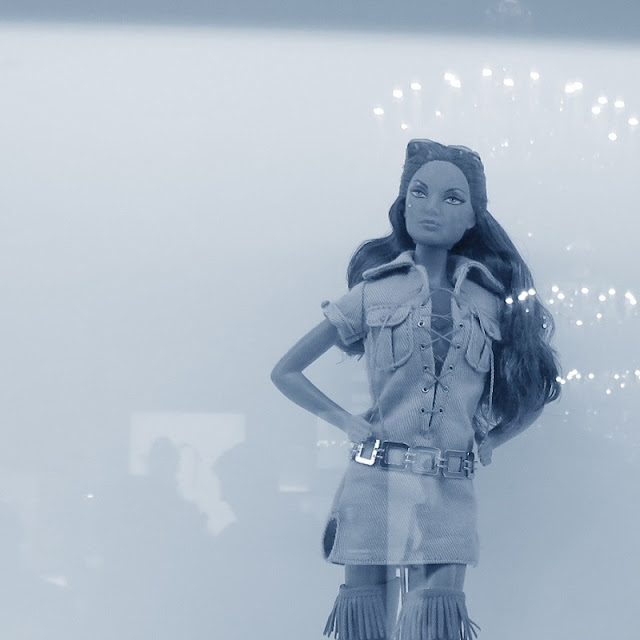City of Ash
By Paolo Bacigalupi
The thought filled her with relief. The dream of escape… She could still see Papa flying, proud and strong, free of all the tethers that kept them trapped in Phoenix. This broken city wasn’t the last stop as Maria had feared. It wasn’t their dead end. She and her father weren’t going to end up like all the other Texas refugees, smashed up against the border controls of California, which said it already had too many people, and Nevada and Utah, which seemed to hate people on principle – and Texans in particular. They were getting out.
Smiling, she drank from the water jug. She tried to keep a disciplined eye on how much she had, but she was so thirsty, she ended up draining it and feeling ashamed, and yet still drinking, convulsively swallowing water until there was nothing except drops that she lapped at, too, trying to get everything.
Never mind. It’s not like it was before. Papa’s got a job now. It’s okey to drink. He said it was okay to drink.
She remembered how it had been the day after Taiyang International hired him: him coming home with a five-gallon cube of water and two rolls of toilet paper, plus pupusas that he’d bought from a pop-up stand near the construction site – but most of all, him coming home smiling. Not worried about every drop of water. Not worried about… well, everything.
“We’re all good now, mija,” he’d said. “We’re all good. This job, it,s a big one. It’ll last a long time. We’re gonna save up. And we don’t just got to go north now. We can buy our way to China, too. This job, it opens a lot of doors for us. After this, we can go anywhere. Anywhere, mija.”
 |
| City of Ash. Photo by Elena. |
He kept saying it, over and over again: We can go anywhere.
Papa had a job again. He had a plan again. They had a chance, again. And for the first time in months, he sounded like himself. Not the scared and sorrowful man who kept apologizing that they didn’t have enough food for the night or the medicine that Mom needed, or who kept insisting that it was possible to go north when it clearly wasn’t. Not that man who seemed to crumple in on himself as he realized that the way the world had ben was no longer the way the world was.
It had all happened so fast. One minute Maria had been worrying about what her mother would say about her B on a biology test and the dress she’d have for her quinceanera, and the next, America was falling apart all around them, like God had swiped his hand across the map and left a different country in its place.
You weren’t supposed to get turned back by militias at the border of Oklahoma or see people strung in the margins of the interstates. But she’d seen both. Her father kept saying that this was America, and America didn’t do these things, but the America in her father’s mind wasn’t the same as the America that they drove across.
America wasn’t supposed to be a place where you huddled for safety under the shield of an Iowa National Guard convoy and woke up without the, – waking with a start to desert silence and the hot flapping of a FEMA tent, realizing that you were all alone, and that somewhere out in the darkness, New Mexicans were planning to make a lesson of you. In Papa’s mind, that shit didn’t happen. On the ground, it did. There was America before Cat 6 hurricanes and megadroughts, and there was after – with everyone on the move.
This was all past now, though. Papa finally had a plan that would work, and a job that paid, and they were getting out.
Maria settled back on her matters and dug out a language tablet. The Chinese gave them away free to anyone who asked, and people hacked them to get access to the public network. To make up for her greed with the water, she decided to study instead of watching pirated movies.
The screen lit up, and a familiar Chinese lady started the lesson. Maria followed her prompts. The lady moved on from numbers to other words, tricky games that highlighted the tonal differences between “ma” and “ma,” “mai” and “mai”.
Different language. Different rules. Tones. Tiny differences to Maria’s ear that turned out to make all the difference in the world. If you weren’t trained to listen for them, you didn’t know what was going on. You were lost.
No comments:
Post a Comment
You can leave you comment here. Thank you.